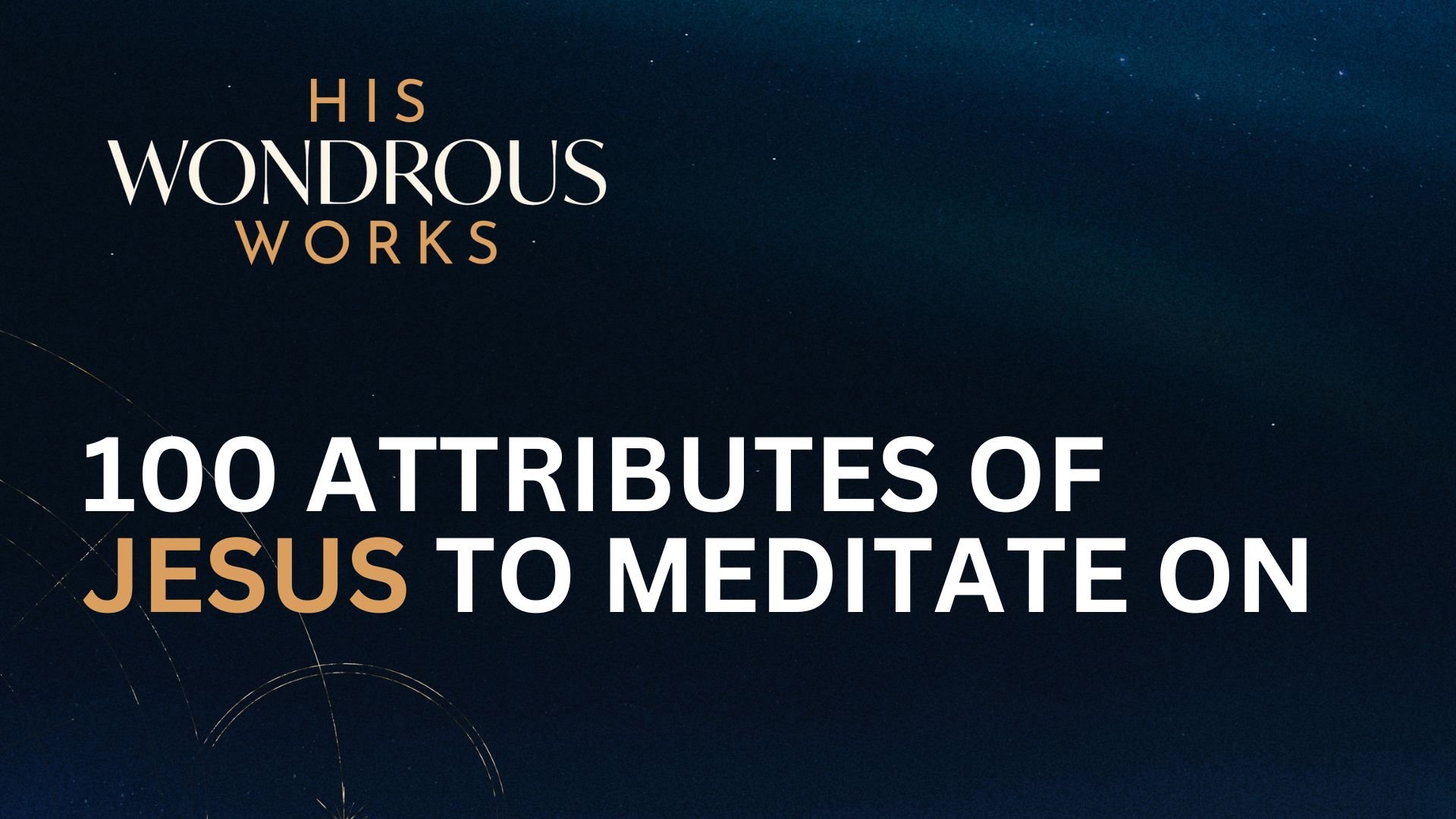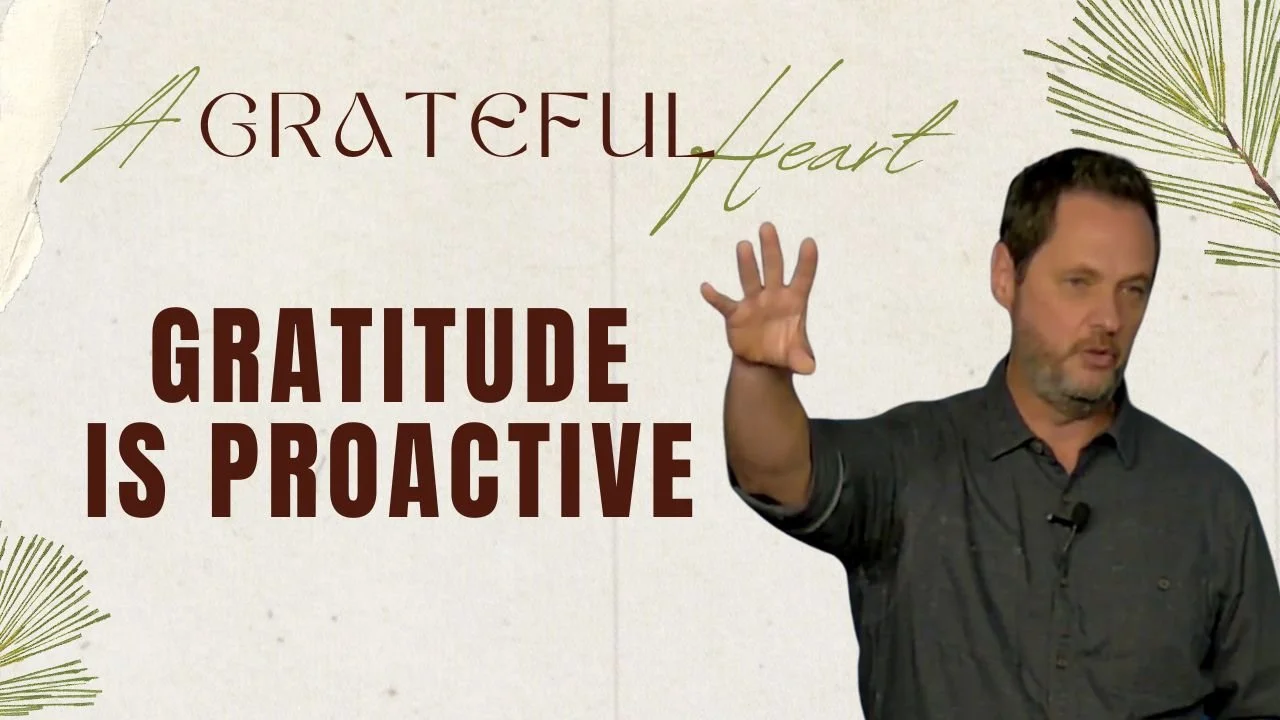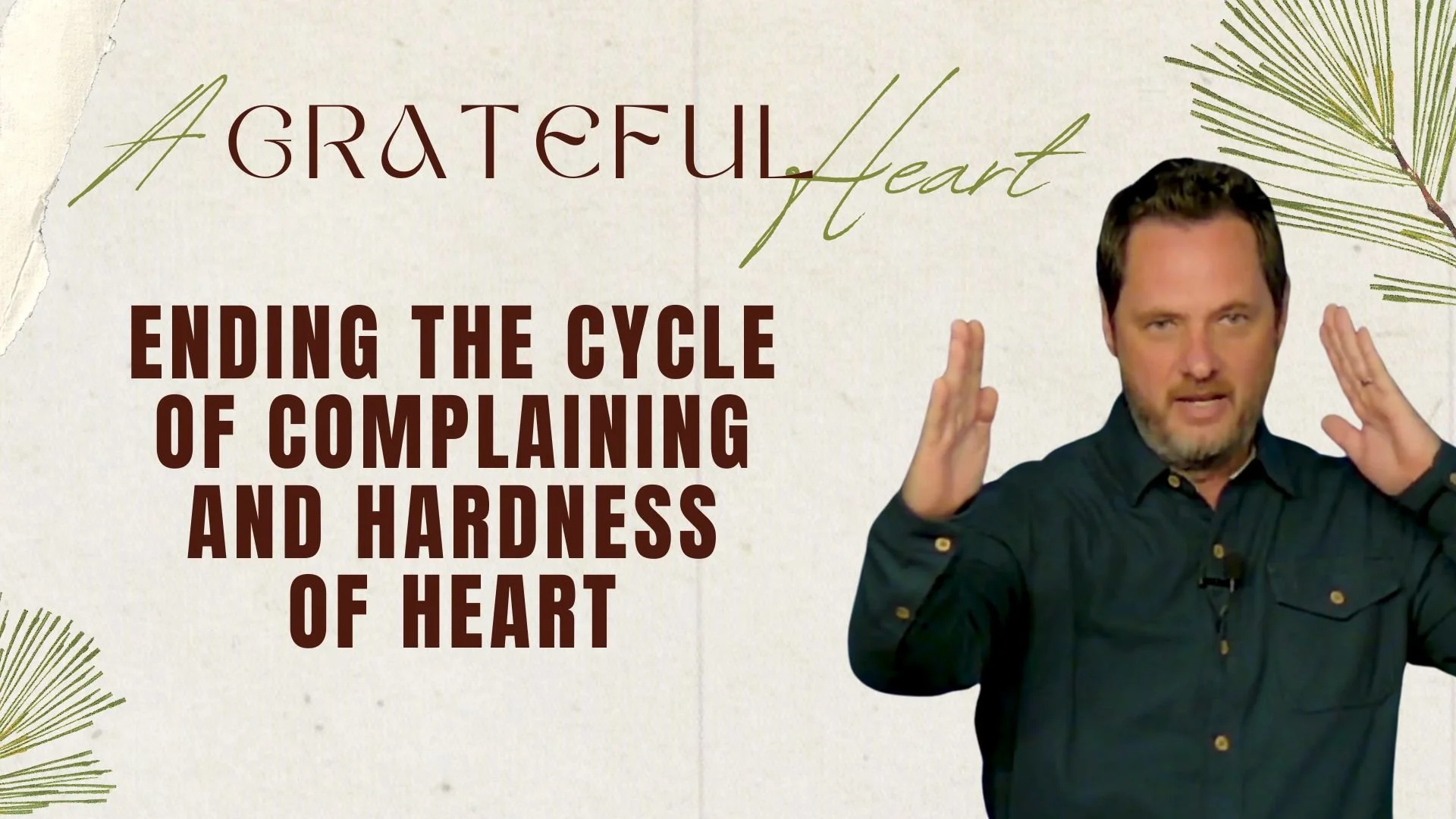Is God evil? Does God do evil? I’m sure you would answer “no” to both questions. Now let me ask you this question… Is God in control? Your answer may change. One more question… Is God controlling everything? Your answer should be the same answer to “is God in control?”
God being in “control” means he’s controlling everything. That’s the point of this article, I want you to think through what you believe about God’s sovereignty and how he’s choosing to exercise his authority in your life and in the world.
Watch a 10 minute condensed version
https://www.clintbyars.com/productsmp3/detox-from-religion-mp3
Your Words Matter
Christians are notorious for saying things like this…
Everything happens for a reason
God is in control
God works all things together for good
God will allow you to go through things to teach you a lesson
The problem is those are not scriptures, they are conclusions that people have come to based on their circumstances, or they are misunderstandings of a seemingly related passage.
All of these phrases are typically used in an attempt to bring someone comfort who is in pain or loss, but when you think them through actually blame the blame on God for evil.
Go All The Way
Let’s just stick with God is in control. If you say that as an explanation for anything, then I have a few questions for you. Do you mean that God has predetermined everything and he’s controlling it as it plays itself out? Do you mean that mankind has free will but if we trust him it will all work out? Do you mean that he allows cancer to teach people lessons? Do you mean that everything that happens in the world has to pass through his hands? What exactly do you mean and what passages are you basing it on.
If God is controlling everything, then we have to look at someone like Jeffrey Dahmer. If God is in control, then that means God birthed desires of murder in the heart of Jeffrey. That means God gave him the plan to lure young men back to his apartment, drug them, handcuff them to his furniture, kill them, remove their heads and place them in his refrigerator, then pose their headless bodies as art as he photographed them, and finally, eat a portion of their biceps.
If God is in control, then he gave Jeffrey Dahmer all of those ideas and desires. You can’t say “God is in control” and not take it that far.
Free Will Debate
The issue is this, does mankind have free will. Does God’s foreknowledge of your choices mean that he ordained your choices, are you really choosing or do you just have the illusion of choice?
I say you actually have a choice. You are completely free because is sovereign and powerful enough to create a world where even though he may know what you’ll choose, he’s given you enough dominion to make a choice from within your own heart, independent from his foreknowledge or influence. You are free to choose life or death, as he stated.
There is a systematic approach to the Bible that believes exactly the opposite of what I just described. That system is generally called Calvinism. Calvinists like to say they just teach the text of the Bible and take it at face value. They don’t “jump around” and teach topical sermons. It’s a very sterile approach that looks at the Bible as a textbook, a divinely inspired textbook, but a textbook none the less. Meaning, there’s no real interaction with God’s indwelling spirit relationally. God is not speaking to us or revealing things to us, he’s already done all of that in his written Word, so if you want to know God, you understand his Word as accurately as possible.
That is not a bad thing per se, but it leads on to come up with some interesting interpretations of scripture. An academic, textbook approach leaves out application. An academic approach doesn’t reason scripture the single lens that we should reason all understanding through, which is the sacrifice of Christ, which ultimately reveals God’s heart toward mankind.
There’s a difference between knowing someone and knowing about someone, just ask Job. Once he knew God, he repented for everything he said, including “the Lord gives and the Lord takes away.”
I will not solve the debate in this article, but I might help you think some things through that you believe about God.
Circumstance Theology
Many folks attribute their repentant heart and changed lives to difficulties they went through. That’s fine. Where it goes wrong is when they say God did those things to them with the purpose of them learning these lessons.
Here’s a list of things people have directly told me that God put them through to teach them a lesson or bring them closer to him, these are all real…
God gave me cancer
God put me through drug addiction
God took my wife
God allowed me to be in a car wreck
God flooded my house to bring me closer to him
These all stem from the mentality that God is in control. They all attribute the issue or circumstance to his plan for their lives. Is that who God really is? I realize that there are passages that seem to allow for God to behave that way but is that who God really is?
I submit that any passage that seems to indicate that God is doing evil are misinterpreted by the reader. God is not evil and does not do evil.
All Powerful Does Not Mean All Controlling
The fact that there is only one God, that he is all-powerful, that he is omniscient, that there is none like him, the supreme being, doesn’t mean he uses that power and authority in an all-controlling way.
To say that there is none like him, he does what he pleases, does not mean that it pleases him to give you cancer and cause you to face depression so you’ll suffer. If he is doing that to you, he is evil.
Sovereign simply means the one in charge, the one with the authority, the supreme ruler, it doesn’t automatically mean he’s controlling everything.
The Potter and The Clay
This is a very big topic. My goal is not to give you a theological discourse on Arminianism and the will of man, my goal is to help you install a lens for Bible reading. That lens is God’s heart toward mankind expressed in Jesus and a little bit of logic based on his heart.
Romans 9 is a hotbed for validating Calvinism and the perspective that God is controlling everything.
Paul expresses his heart to his audience, speaking about Jews…
3 For I could wish that I myself were accursed and cut off from Christ for the sake of my brothers, my kinsmen according to the flesh. 4 They are Israelites, and to them belong the adoption, the glory, the covenants, the giving of the law, the worship, and the promises.
This remains the context of the rest of the chapter, meaning he’s talking to Jews. What you’ll learn is that he’s talking to Jews about Gentiles being saved. Keep this in mind…what if I asked you how you’d feel about worshiping God in Heaven next to Jeffrey Dahmer is he truly repented and believed? Would you have a hard time with the fact that someone so evil could be saved? You might not have trouble with that but there are plenty that do. Most of the Jews looked at the Gentiles as veil people and could not accept the idea that they could be in God’s family through Christ. Even Peter struggled with this early in his walk with Jesus.
Paul goes on to say in verse 8…
This means that it is not the children of the flesh who are the children of God, but the children of the promise are counted as offspring.
The children of promise were God’s elect, meaning the offspring of Abraham that were born through his promised child, Isaac. The term “elect” is defined in TULIP Calvinism as those whom God chose before creation to be saved. When the truth is this, the elect are those Israelites that were born under Abraham’s promised child, the bloodline through which God would continue to reveal himself through.
The language around the “elect” always has to do with Jews rather than which people in the general populous can be saved. He uses Jacob and Easu as an example of the model of promised child vs child of the flesh.
Again, I realize this is material that has been debated for centuries, the point is to frame God’s sovereignty properly. What Paul is doing here is building a case that God can do whatever he chooses.
What you’re about to see is that Paul’s argument for God’s free will to do as he pleases is expressed in Gentiles being saved. In other words…
God can do whatever he wants, and what he wants is for Gentiles to be saved through Christ too.
That is the reason Paul is giving examples of God’s sovereignty, to show that Gentiles can be saved. The examples of the unique things God did through his covenant with Israel are not to be universally applied to all of our lives today.
I put that in bold caps so you’d pay attention to it. Read that again and understand that this is the whole point of Romans 9. Keeping in context, Paul gives the example of the potter and the clay. The Israelites were questioning if the Gentiles could be saved and Paul is saying, who are you to question God on what he can and can’t do.
Paul uses Pharaoh as another example that God does what he wants, and what he wants to do is save Gentiles. Does Paul’s example of God hardening Pharaoh’s heart mean that we are to apply to God in every situation that God is potentially hardening people’s hearts and then turning others to him?
God was bound to a covenant with Israel. They got into a situation where God had to act to keep his word. The Israelite’s position was so unique in the history of mankind that God did very unique things to, through and for them.
You might say, God never changes. And that’s true, but covenants change, the context of God’s relationship with humans changes.
Paul then says this…
19 You will say to me then, “Why does he still find fault? For who can resist his will?” 20 But who are you, O man, to answer back to God? Will what is molded say to its molder, “Why have you made me like this?” 21 Has the potter no right over the clay, to make out of the same lump one vessel for honorable use and another for dishonorable use? 22 What if God, desiring to show his wrath and to make known his power, has endured with much patience vessels of wrath prepared for destruction, 23 in order to make known the riches of his glory for vessels of mercy, which he has prepared beforehand for glory— 24 even us whom he has called, not from the Jews only but also from the Gentiles?
While this is used as an explanation for God controlling everything and everyone, that’s not the proper conclusion. Verse 22 is the key to understanding the potter and the clay illustration…
What if God, desiring to show his wrath and to make known his power, has endured with much patience vessels of wrath prepared for destruction
Here’s another way to ask this question from Paul, “why would God show patience to the vessel created for wrath?”
Let me back up a little and ask you another question. This question touches on the idea I brought up earlier about knowing about God vs knowing God.
Here’s the question, did Pharaoh have a choice? Could Pharaoh have obeyed God and released the Israelites before any of the plagues were poured out? That’s the subtle point Paul is making. You can’t say God is controlling everything and everyone, why would he bother to show Pharaoh patience and give him multiple chances to save the firstborn of Egypt?
All of the illustrations Paul gives that Calvinism says is for the purpose of defining God’s sovereignty as “in control,” those illustrations are actually to make the case that God can save Gentiles is he chooses to. He uses the instances where God makes specific decisions based on his promises to Israel as validation that God is now doing another thing he chooses, save Gentiles, and who are you to question his will to save Gentiles?
At this point you either see it or you don’t. I admit this is a tricky selection of scripture to navigate. Some would say I’m doing exegetical gymnastics but what I’m actually doing is holding true to God’s character, framing Paul’s arguments in light of God’s covenant with the promised children of Abraham and coming to the conclusion that all of this is in the context of making a case that Gentiles can be saved.
That’s a mouthful, I know, but if you’ll try to understand and read Romans 9 in that light, you’ll see it’s all about convincing Jews that Gentiles can be saved. Just look at how chapter 9 ends, it’s all about making the point that Jews have a hard time with the fact the righteousness comes by faith, even for Gentiles.
30 What shall we say, then? That Gentiles who did not pursue righteousness have attained it, that is, a righteousness that is by faith; 31 but that Israel who pursued a law that would lead to righteousness did not succeed in reaching that law. 32 Why? Because they did not pursue it by faith, but as if it were based on works. They have stumbled over the stumbling stone, 33 as it is written, “Behold, I am laying in Zion a stone of stumbling, and a rock of offense; and whoever believes in him will not be put to shame.”
Conclusion
Romans 9 is just one place where folks go to make the case that God is controlling everything. If that chapter can be seen in a different light, doesn’t that mean that every other passage that seems to indicate that God is allowing pain and loss into your life to teach you a lesson to be examined for proper context, making sure you’re holding true to God’s heart toward mankind revealed in Jesus.
This is one of those articles that feels like a sermon, I want to keep going until I feel complete with the idea but I will leave you with this. God is good and only good. His definition does not somehow allow for acts of evil, like putting cancer on people, planning the murder of 68,000,000 unborn babies last year and birthing evil desires in the hearts of people.
You probably agree with that but you have friends and family members who do not. It can be intimidating to stand up for the goodness of God because some folks have spent so much time reinforcing their “God’s in control” beliefs by their twisted view of scripture and the emotions attached to their life’s circumstances that they attribute to God.
God is all-powerful, it is true that he can do what he chooses, he has done things under the old covenant that seem confusing, but in our time, under this new covenant, God is seeking to establish his kingdom in and through you. In his kingdom is no darkness, pain, sickness, depression, lack or calamity in any form, rest in the fact that God is not playing chess with your life, you can fully open your heart to him and trust him.







